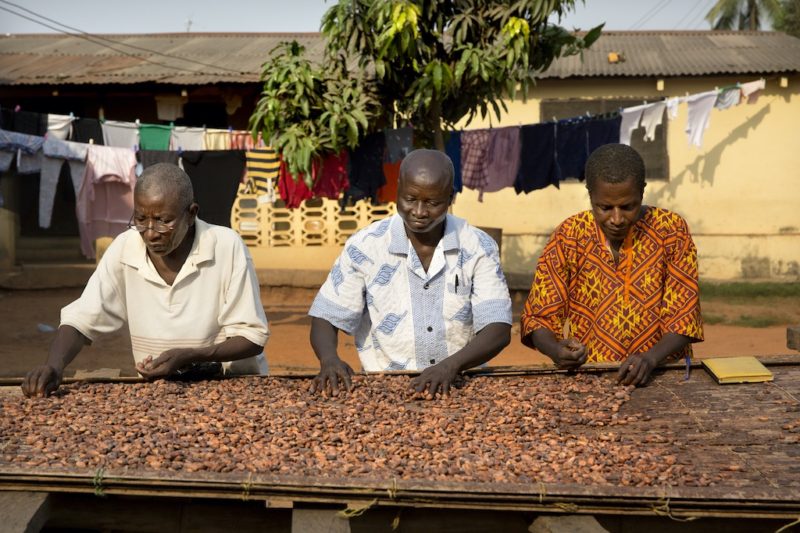Fairtrade calls on EU to reject bid from Europe’s EPP party to delay EUDR

Cocoa farming in Ghana
Fairtrade International has made a direct environmental plea to the EU Commission, calling for it to reject a late amendment from the European People’s Party, which is seeking a two-year delay to landmark EUDR environmental laws, writes Neill Barston.
As previously reported by Confectionery Production, there had already been considerable concern expressed by many key industry confectionery organisations, companies, and environmental campaign groups over existing proposals to set back the major legislation by a year from its original proposed start date at the end of next month.
It is due to impact major supply chains serving the confectionery sector, with cocoa, palm and soy, all falling within the remits of the product categories covered.
Significantly, the EPP has asserted that this requires yet further action to roll it back a further year until the end of December 2026, amid claims that a two-tier system will emerge for commodities trading (between those that are certified and those that are not, including the cocoa sector), if insufficient time is permitted for countries and companies to put implementation plans in place.
Major environmental and social concerns
However, Fairtrade said that the EU needed to uphold the new laws, that were formally agreed more than 18 months ago – stating that there is an urgent need to protect forests and mitigate climate change inside and outside the European Union.
As the social justice movement asserted, the EPP’s proposal demonstrates its desire to deregulate a key environmental legislation of the European Green Deal, and a delay of 24 months would in its view, jeopardise the substantial investments and efforts made by thousands of stakeholders – including companies as well as coffee and cocoa farmers – to comply with the law.
Fairtrade’s position was backed recently by the Cocoa Coalition including Ferrero, Hershey, Mars, Mondelez International and Tony’s Chocolonely, along with advocacy group, the Voice Network, which stated that the EUDR scheme must be implemented as soon as possible, and that it should not be altered in any way further than the 12-month delay proposed by the EU Commision.
Stating its own position which is at odd with the group, Christine Schneider, a member of the European Parliament for the EPP, asserted: “The current Deforestation Law is a bureaucratic monster. If implemented, it risks hampering European farmers and businesses. That’s why the EPP Group has called for a delay, but postponement alone is not enough,”
Noting its considerable concern at this position, Faritrade explained that any further delay would have major negative impact for the environment and all the core stakeholders involved at a farming level, who have prepared to be ready for the scheme’s original intended launch next month.
Fairtrade stated: “The EPP also wants to remove due diligence obligations from traders. And while this would reduce administrative burdens and costs with certain stakeholders in the supply chain, it could lead to less accountability for traders. As Fairtrade stated repeatedly, there is no environmental and social sustainability without fair sharing and management of risks across the supply chain.
“Plus, the EPP amendments also called for the establishment of a “no-risk” category in the benchmarking process, which means companies would only need to show evidence of compliance if requested by the competent authority. Fairtrade believes that there are zero “no risk” categories because human rights violations and environmental degradation may happen even in regions/countries where deforestation has been decreasing.
“Furthermore, without associated mechanisms to incentivise forest protection and restoration, a “no risk” category could lead to unintended consequences, such as the lack of activities that support sustainable supply chains in countries at risk.”
Fairtrade added that it was not among those who had initially called for a 12 month delay – and observed that if no agreement could be arrived at among European nations about the EU’s own proposed year delay, the laws would become live from the end of next month.
It noted that a decisive vote on the issue was due to take place on the proposed amendments at the European Parliament’s plenary session in Brussels on 14 November, and urged the EU Commission and member states to reject the EPP’s amendments.



